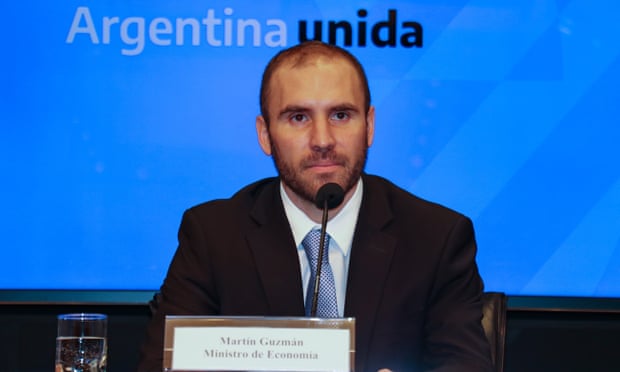by JOSEPH STIGLITZ

Judging by his appointment of a first-rate economist to his cabinet as minister of economy, Argentina’s new president, Alberto Fernández, is off to a good start in confronting his country’s economic problems. Martín Guzmán, with whom I have frequently collaborated in recent years, is among the world’s leading experts on sovereign debt and the problems it can cause, making him the right person in the right place at the right time.
After completing his PhD at Brown University under Peter Howitt (co-author with Philippe Aghion of seminal work in modern growth theory), Guzmán obtained a coveted position at Columbia University, where he forged an academic career and became an influential expert on crucial policy debates at the domestic and global level. He has testified before the US Congress on Puerto Rico’s debt crisis and spoken at the United Nations about the need for a better international system for resolving sovereign debt crises. In recent years he has divided his time between New York and Argentina, where he is a professor of macroeconomics at the University of Buenos Aires.
When the former president Mauricio Macri took office, his economic team openly admitted that while they had inherited many problems, they started with one major advantage: a low level of debt. They gambled on a set of policies – making, for instance, untimely and unnecessarily large cuts in export taxes, paying off old, defaulted debt to so-called vulture funds with unconscionably high returns, and taking on new high-interest, long-term, dollar-denominated debt, all in the hope that market-friendly signals would lead to a rush of growth-spurring foreign investment. Even at the time I thought it was a foolhardy gamble.
The rest is history. It didn’t work out and as matters went from bad to worse, Macri compounded the mistakes. More borrowing, including a $57bn programme with the International Monetary Fund. Austerity. Misguided sterilisation efforts to prevent inflation, which built up a debt overhang. The worst of all possible worlds was soon at hand: more inflation (reaching almost 60% in the current year), higher unemployment (already at double digits and rising) and the re-imposition of the exchange controls, the removal of which Macri had lauded at the outset of his administration as the cornerstone of his economic policy.
As Fernández has put it, one doesn’t solve a problem of excessive debt by taking on more debt
As a result, Fernández inherits a far worse economic situation than Macri confronted: higher inflation, higher unemployment and now, a debt beyond Argentina’s ability to service. Doubling down on a failed policy will not work; nor will returning to what preceded it. That is why it is so important that Fernández has appointed a knowledgeable, brilliant economist who combines youthful energy with a wisdom well beyond his 37 years.
The Guardian for more
